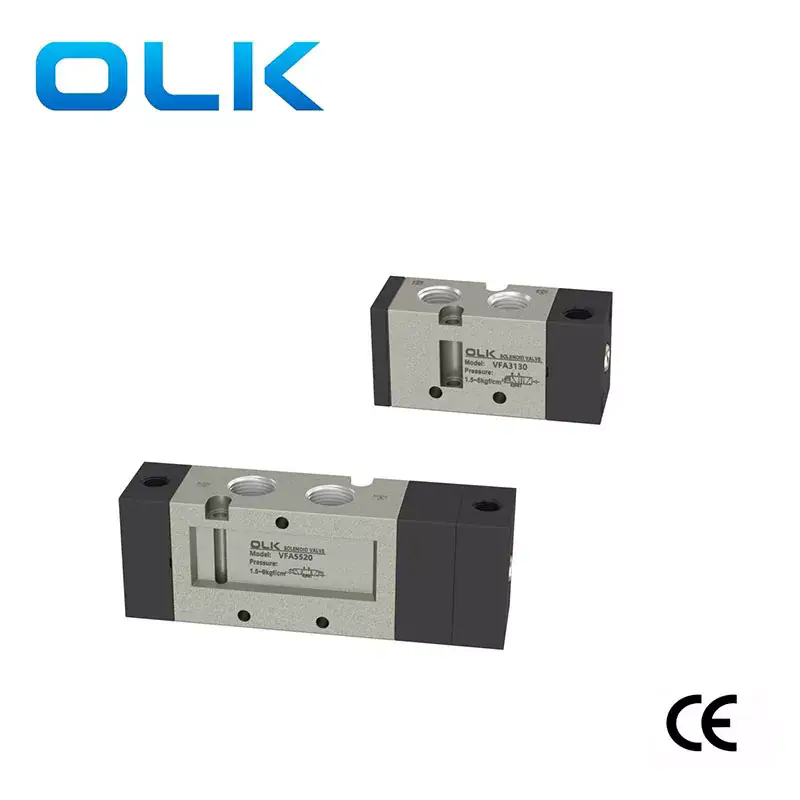Why is an Air Control Valve Essential for Efficient Pneumatic Systems?
2024-11-13
In the world of industrial automation and fluid control, the role of air control valves is often overlooked, but they are absolutely essential for the smooth operation of pneumatic systems. Whether you're in manufacturing, construction, or any other field that relies on compressed air, air control valves are the unsung heroes that ensure the system functions as it should. But why exactly is an air control valve so crucial for efficient pneumatic systems? Let’s take a closer look.
What is an Air Control Valve?
An air control valve is a device used to regulate the flow of compressed air within a pneumatic system. It controls the direction, pressure, and volume of air passing through the system, which in turn determines the movement and operation of air-powered machinery, such as actuators, cylinders, and motors.
Air control valves are typically designed to handle high-pressure air and come in various forms, including manual, automatic, and solenoid-operated types. They are often used in applications where precise control of air flow is needed to ensure the performance, safety, and longevity of the system.
Why is an Air Control Valve Important for Pneumatic Systems?
1. Precision and Control
The primary function of an air control valve is to control the flow of air in a pneumatic system. This is crucial for maintaining precision in applications where the movement or operation of machinery depends on accurate air pressure. For example, in automated production lines, pneumatic actuators rely on controlled bursts of air to perform tasks such as lifting, pushing, or assembling components. Without an air control valve, the system could become erratic, causing inefficiency and potential damage to machinery.
The ability to regulate air flow allows operators to fine-tune their systems, ensuring that each component performs at its optimal capacity, without over or under-pressurizing parts that could lead to malfunction or reduced lifespan.
2. Energy Efficiency
Air compressors are significant energy consumers in industrial settings, and managing air consumption efficiently is a key factor in reducing operational costs. Air control valves help regulate the air supply, ensuring that only the necessary amount of compressed air is used. By preventing over-pressurization and regulating air flow precisely, air control valves help minimize wasted energy, which is particularly important in large-scale operations where air usage can be substantial.
Additionally, air control valves can help optimize air distribution, ensuring that energy is directed to the components that need it most, improving the overall efficiency of the system.
3. Enhanced Safety
Compressed air systems operate under high pressure, and without proper regulation, there can be significant safety risks, including equipment failure, leaks, or even dangerous accidents. Air control valves contribute to safety by preventing over-pressurization and ensuring that the system operates within designated pressure limits.
For instance, valves like pressure relief valves are designed to release excess pressure in case of system malfunction, protecting both personnel and equipment. Properly functioning air control valves help maintain system pressure within safe limits, reducing the risk of accidents and improving overall safety.
4. Flexibility for Different Applications
Different pneumatic systems have different needs. Whether you’re operating a simple air-powered tool or a complex automated assembly line, an air control valve offers the flexibility to meet varying requirements. Air control valves come in different types—such as flow control valves, directional control valves, and pressure regulators—each designed to perform a specific function within the system.
This flexibility allows industries to customize their pneumatic systems based on the task at hand. For example, a flow control valve might be used in a system where air speed needs to be adjusted, while a directional valve is essential for determining the direction of air flow to operate actuators or cylinders.
5. Durability and Longevity of Equipment
Air control valves also play an important role in prolonging the lifespan of pneumatic equipment. By maintaining consistent air pressure and controlling the flow accurately, they reduce wear and tear on other components like cylinders, actuators, and motors. This leads to less frequent repairs, fewer breakdowns, and more reliable performance over time.
Moreover, air control valves are often made of durable materials like brass, stainless steel, or aluminum, ensuring that they can withstand the wear and tear of constant use in industrial environments. Regular maintenance and proper functioning of these valves are crucial for maximizing the longevity of the entire pneumatic system.
6. Automation and Remote Control
In modern industrial settings, automation is key to improving productivity. Many air control valves can be automated through the use of solenoids and sensors, allowing operators to control the flow of air remotely and automatically based on system requirements. For example, a solenoid-operated valve can open or close depending on the electrical signal it receives, enabling fully automated control of pneumatic processes.
This capability is especially useful in applications where precise timing or rapid response is necessary. Automated air control valves can help reduce the need for manual intervention, streamline operations, and improve overall system efficiency.
Types of Air Control Valves
There are several types of air control valves, each serving a specific purpose in a pneumatic system. Some common types include:
- Directional Control Valves: These valves determine the direction of airflow in a system and are essential for controlling actuators or cylinders that need to move in different directions.
- Pressure Relief Valves: These valves automatically release excess pressure to prevent damage to the system, maintaining safe operating conditions.
- Flow Control Valves: These valves regulate the flow of air, ensuring that components receive the proper amount of air pressure for optimal performance.
- Check Valves: These valves allow air to flow in one direction only, preventing backflow that could disrupt system performance.
- Solenoid Valves: These valves are electrically operated and allow for automated control of air flow based on electrical signals.
Conclusion
Air control valves are integral to the efficient, safe, and reliable operation of pneumatic systems. From providing precise control over air flow to enhancing energy efficiency and ensuring safety, these valves are crucial for keeping industrial operations running smoothly. Whether you are in manufacturing, construction, or any industry that relies on pneumatic systems, understanding the importance of air control valves and ensuring that they are properly maintained is essential for long-term success.
By regulating pressure, flow, and direction, air control valves allow for greater control, flexibility, and energy savings—ultimately leading to a more streamlined and effective pneumatic system. If you’re looking to improve the performance and longevity of your pneumatic equipment, investing in high-quality air control valves is one of the best decisions you can make.



